
The is a translation of an interview conducted by Mohamed Nazreen Shahul Hamid and published in the November 2018 edition of "Dewan Sastera", a Malaysian literary magazine edited by Zaharahanum Kamarudin. The interviewee, Emad El-Din Aysha, PhD, is currently a member of the Egyptian Society for Science Fiction (ESSF) and a contributing editor to The Levant. The subject of the interview were two of his short stories:
- “A Detour in Space” by Emad El-Din Aysha – Reconnecting Arts, published online May 1, 2017, https://reconnectingarts.com/2017/05/01/a-detour-in-space-by-emad-el-din-aysha/
- “The Cymbals of Progress” published in the Trump: Utopia or Dystopia sci-fi anthology (Edited by J.F. Garrard & Jen Frankel) by Dark Helix Press on 27th December 2017
A small clarification before proceeding. The title of this interview is that of the Malaysian publication, not that of the interviewee. Also, the interview was in the print edition of the magazine so the hyperlinks here were added afterwards.
- What is the inspiration behind the “A Detour in Space” and “The Cymbals of Progress”?
Funny that you should ask! In the case of “A Detour in Space” I got the idea during the holy month of Ramadan – this was back in 2016. In Egypt, we have soap operas and social dramas on television the whole month, almost all day long. We used to have special Ramadan entertainment programmes but no more. I was watching one particular TV series, without naming names, and there was a wedding scene in it, at a five star hotel. A very traditional and annoying wedding ceremony and I said to myself: “It’s hopeless, if you put Egyptians on Mars they would still behave the same way and hold the same old fashioned, outdated weddings!”
And hey presto, I got the idea for the story. I began to see images in my head about Egyptians on Mars, working the land and getting into trouble with each other – land disputes and lawsuits against each other.
When I actually started typing the next day, however, two other ‘threads’ came into the storyline. One was a novel I’d just read, by Graham Greene, his classic The Heart of the Matter. It’s set in an unnamed British colony in Africa where the Syrian business community is split along religious and sectarian lines and individual businessmen are busy trying to get rivals into trouble with the authorities. That gave me the idea of the Syrian neighbourhood, splitting into several neighbourhoods, in line with the civil war in Syria right now. But I had a Lebanese cabbie, on purpose. For some reason when you have an English novel set in the Middle East, you have a Lebanese cabbie, though I made the taxi driver less despicable than what you normally find in British novels!
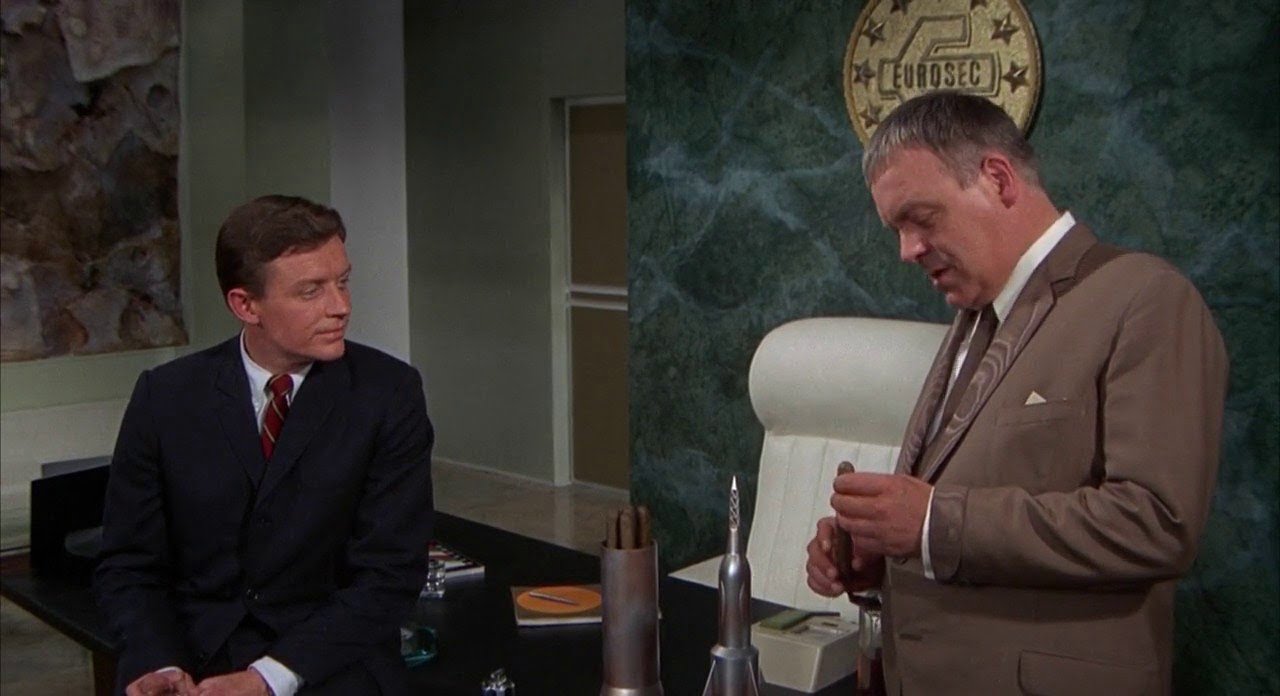
As for the controller and the tussles with Arab financiers, I’d also just watched an old, old childhood favourite a little while ago, Journey to the Far Side of the Sun (1969). There’s a whole funny story behind that too which I can’t go into here. (It was originally called Doppelgänger). But the themes of the movie, which I’d watched originally as a kid, intrigued me and seemed relevant to the present-day world, such as European unity and transatlantic relations and ‘Brexit’ especially was on my mind at the time, and there was born the controller of the pan-Arab space agency and the videoconferencing with the big boys in the Gulf Arab oil states that finance Egypt’s scientific ambitions, people who are not nearly as scientific as the controller.
The story behind “The Cymbals of Progress” is more complicated. I’d been doing an academic article on the Arab Spring revolutions, relying on the theories of the great media theorist Marshall McLuhan. (I was working at the American University in Cairo till 2013 when I’d begun my research on the topic). McLuhan is mostly known for his work on television and the ‘global village’. But he also did work on radio which was very different. He concluded in that in the past radio brought people together – it’s a collective experience, not like reading a book, which tends to individualism – but increasingly radio was driving people apart, partly because sound is very subjective and emotional. Sound gets inside you, psyches you up, and forces you to imagine things in your head too, because it’s just sound unaccompanied by pictures so you have to use your imagination. People listen to things different than what others listen too.
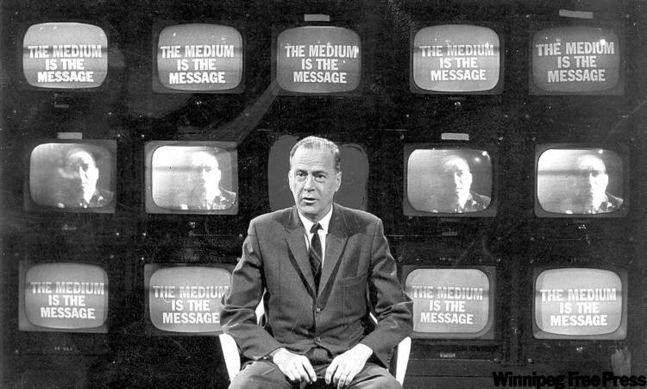
I also remembered that in Guantanamo Bay they used Heavy Metal to torture terror suspects. (Really!) Writing in fiction, while challenging, is much more flexible than academia and I wanted to explore the full range of possibilities in McLuhan’s work. So I said to myself, what if… you could use sound to cure people of aggressive tendencies – a sort of reverse of the torture done to the ‘suspects’. What if… sound was part of isolation, like Culture Shock. Sounds, ugly sounds, get exaggerated out of proportion in your head when you’re in a foreign land.
And I got the idea for the story, with a lecturer presenting the theory, in flashback sequences, while doing a real-life experiment on an unnamed ‘leader’. (I partly got the idea for that from an interview of Edward Said. He said he’d once given a talk at the Pentagon and was surprised to find the military people opposed to the Gulf War!) Then I saw the advert for a Canadian sci-fi anthology on Donald Trump, Trump Utopia or Dystopia Anthology, and made some alterations and sent it, then got lots of great artistic input from the editors at Dark Helix Press – J.F. Garrard and Jen Frankel.
- What are you trying to tell the reader from these two short stories?
Concerning the message of “A Detour in Space”, it’s summed up in the title. We, as Arabs, are supposed to be heading into outer space, heading into the future, but in reality we’re taking a detour back home, to Earth, where all our problems are. That’s what I wanted the reader to understand. A tall order since the reader is Arabic and the story is in English!
The problem is the baggage we bring with us, our cultural hang-ups and bad social habits and political problems. Egypt is the heart of the Arab world and where all the scientists and engineers are, but we don’t have the money we need to make it all happen, hence the Gulf Arabs. The Syrians are brilliant merchants but they have problems with each other, on the basis of sect, religion, province, town, neighbourhood, class, clan, tribe, etc.
That’s what’s holding us back as Arabs and giving the Israelis the go-ahead against us. My story was a deliberate lampooning of the current situation in the Middle East, with only Turkey and Iran making any headway, the non-Arabic Muslim parts. And I tie this to history, my other great love next to science fiction. Saladin wasn’t an Arab to begin with and he did what no Arab could do and liberate Al-Quds and unite the Muslims.

As for “The Cymbals of Progress”, again, this is more complicated. I was more interested in the neuro-science and social science and policy implications. The religious aspect of it I added afterwards, actually, about the sounds made on pilgrimage to Mecca and the sounds in heaven. I’d stumbled onto not very well known aspects of Islam as a religion that deal with noise pollution in a book I was reading, by accident, after I’d already written the story and was having it edited by Dark Helix.
As for the title, its meant to be ‘symbols’ of progress, but cymbals, which sounds about the same, is a musical reference, so I’m saying that part of being civilized and advanced is listening to nice music and appreciating music and not making loud sounds that disturb your neighbours. Same as not throwing garbage on the streets and pushing people out of the way when walking or smoking in a public place.
- Why does Malaysia have two colonies in “A Detour in Space”?
I have two colonies, in line with what I said above about the non-Arab Muslims making all the advances, and decided to emphasis the Malaysian story of progress – what they’ve been able to do in economic development and political ‘independence’ from Mahatir Muhammad onwards. We’re all very proud of Malaysia in Egypt and the Arab world.
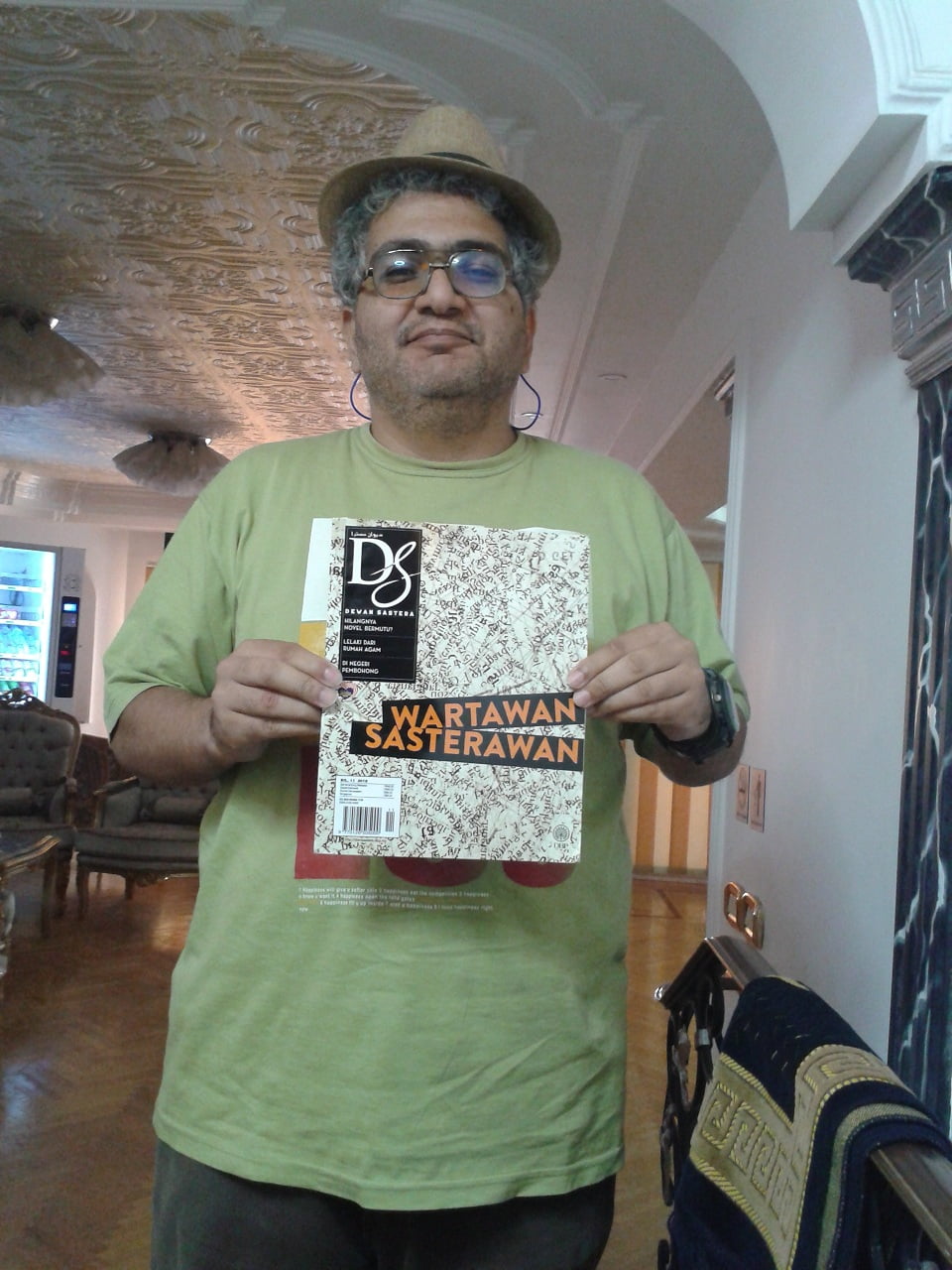
I’ve since expanded “A Detour in Space” into a novel, still unpublished and in draft form, and give South East Asians and East Asians a big if indirect role in it. I also wanted to say, in the story and in the novel (called The Algeciras Chronicles), that the more you isolate yourself from the rest of the Muslim world – as Arabs – the more you harm yourself and cut yourself off from their success stories and the lessons you can learn for industrialization and urbanization and democratization. Never mind diplomacy and having allies in the world, politically and technologically.
We’re too focused on the West when it comes to models for advancing ourselves and forget India and China and South Korea and Malaysia, never mind Indonesia and Turkey, countries which have slightly more similar circumstances to us as Third Worlders.
- What is your opinion about science fiction in Egypt?
Its ‘improving’, let me put it this way, the energy and ideas being pushed by the young generation is phenomenal. They’re breaking all sorts of conventions in our writing as Egyptians and Arabs and are getting into synch with SF in the rest of the world and also charting their own course as Arabs and Muslims. But the general atmosphere for SF in Egypt is bad. Not enough people like it or even understand it – they think its surrealism or fairy tale stories – and the publishing industry is in a mess and the economic situation isn’t helping.
There are no literary agents in Egypt, or any Arabic country for that matter, editors almost don’t exist (at least in Egypt when it comes to fiction writing) and there’s no way to guarantee the rights of the author and get him a decent paycheck, so to speak. Young authors have to write in horror and detective fiction to make money and they end up squandering their creative talents.
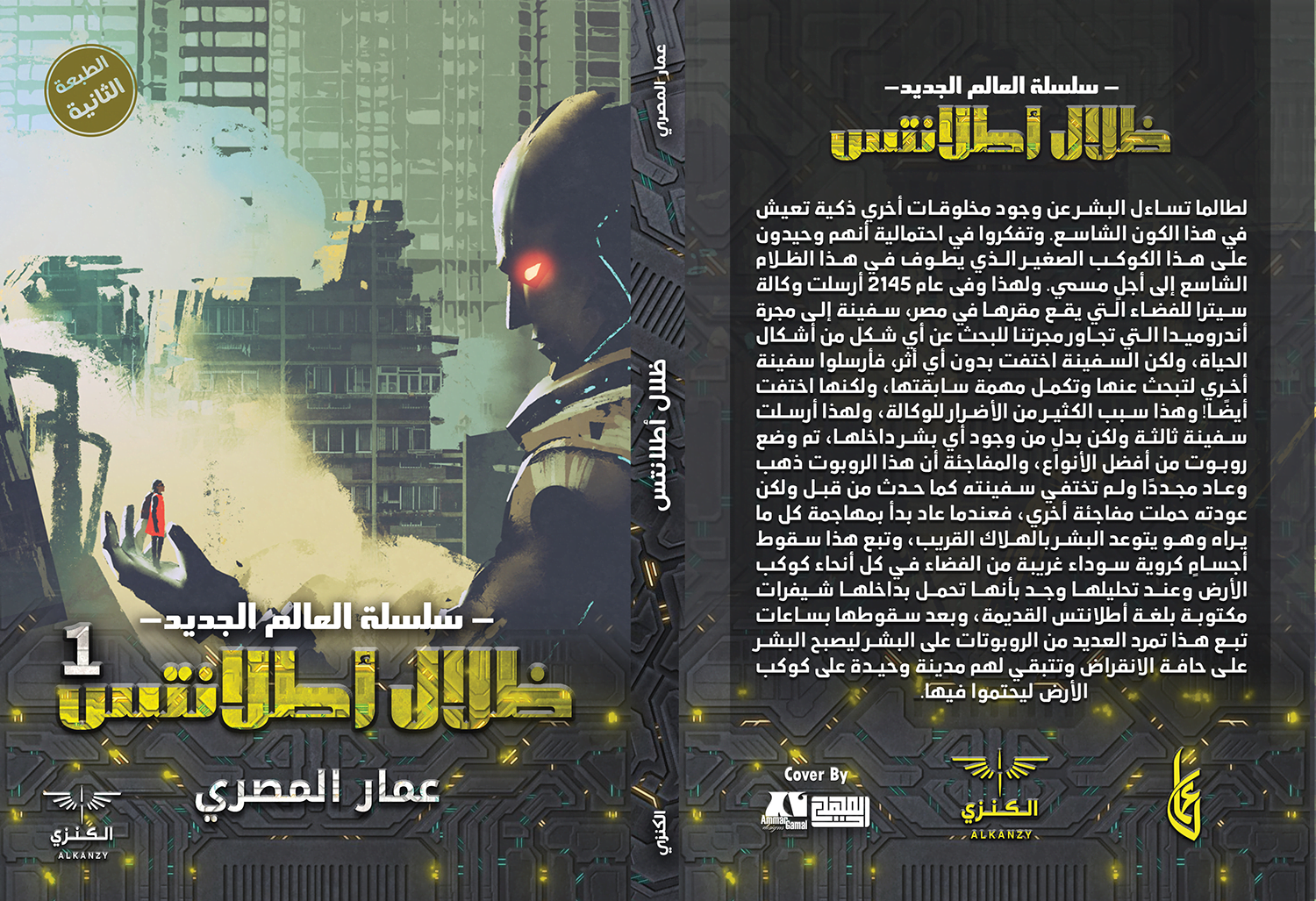
But I’m optimistic for the future. If we can introduce Egyptian SF writers to a global audience, in English and other languages, that will buoy things up. And we most definitely need to cooperate with our genre brethren across the Arab and Muslim world, and Third World.
Update: Another derivation from my Martian endeavours can be found in R.N. Stephenson’s anthology The Worlds of Science Fiction, Fantasy and Horror Volume IV (2019), downloadable in several formats here. The guilty story in question is “Lambs of the Desert”.



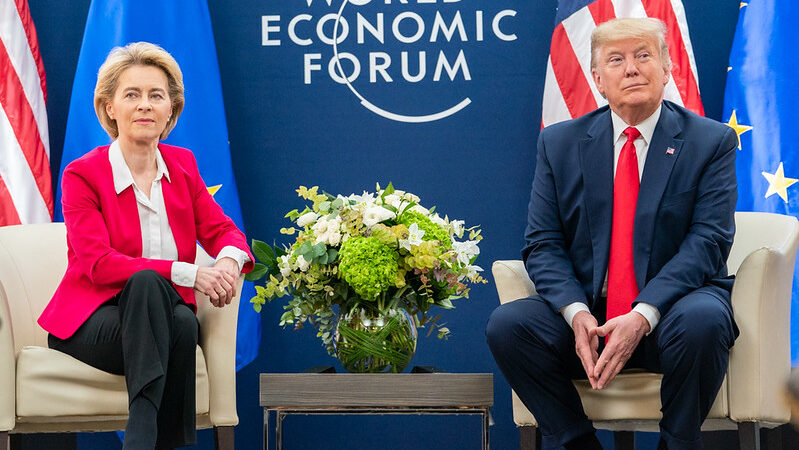


[…] https://theliberum.com/egyptian-science-fiction-criticises-arabs/ […]
Bravo! Well played! All your patience and determination will bring this important genra to the Arab reader.
[…] but not least there is the character of Helen from my own planned, still unpublished novel The Algeciras Chronicles. Sadly I had to take her out of the compressed-modified excerpt I published in The Worlds of […]
[…] first published story came out in 2017, “A Detour in Space”, and my first book – The Digital Hydra and Other Stories (in Arabic) – was published this year […]
[…] to Mars by the Egyptian head of the space agency who consoles himself with the fact that the Turks, Malaysians and Iranians on Mars are doing very well indeed – and that Saladin ultimately wasn’t an Arab […]